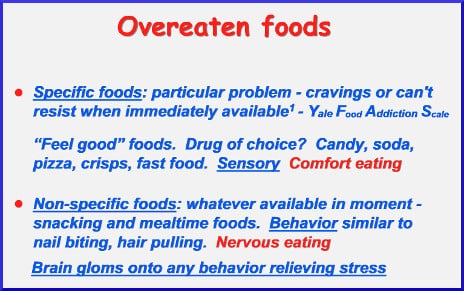
Kurbo, a weight-loss app created for young people from age 8 to 18, claims to be different from many others in its market niche. Journalist Amy Graff explored the question of why, and learned that it is “based on practices from a program at Stanford University with a proven track record.” How proven? Graff says:
Since 1999, more than 80 percent of the participants in the Pediatric Weight Control Program at Lucile Packard Children’s Hospital have achieved age-appropriate weight reduction.
Although the program avoids “straight-up dieting and calorie-counting,” it does encourage participants to choose healthy foods (which seems to be walking a fine line). It also encourages exercise, portion control, learning through games, and strategies for food-intensive holidays. There is no caloric math, but foods are sorted into three groups on the traffic-light principle. The goal, obviously, is to stay away from foods in the red zone, eat some from the yellow zone (meat and grain), and eat a very large amount from the green zone (vegetables and fruits.)
The app’s creators aim to provide kids with tools for making healthier decisions and to cultivate “the ability to take charge of their eating, without parents or doctors telling them that they were bad, or overweight, or couldn’t eat the food they like.” That last notion may be the weakest plank of the platform. It has been Dr. Pretlow’s experience that, on the road to health, some foods just have to be abandoned along the way.
The Parent Trap
Kurbo says it can “empower kids to make healthier choices and lose weight without feeling stigmatized.” The implications of family dynamics have been deeply considered, and the program was designed to relieve parents of the onus by inducing kids to take responsibility. Ideally, accountability is removed from the parents, especially the mother, who usually bears the brunt of a child’s displeasure with interference.
One of the company’s self-descriptions is that it takes the power away from the parents and gives it to the kids. A parent can ask, “Did you follow the program?” but even that might be too much for some prickly-tempered teenagers. Supposedly, one of the app’s benefits is that it “changes the way parents and children talk about the issue,” which can make all the difference.
The basic app is free, but the program is partly monetized by the option of dis-involving the parents even further, by signing the child up for pre-paid supportive coaching which is available in two tiers—text/email or Skype. All this is very interesting in the light of the almost universal insistence on the vital importance of parental involvement in weight loss efforts. It’s almost like another of those “everything you know is wrong” paradoxes that keep cropping up in the childhood obesity field. Of course, there are other authorities who advise cutting parents some slack. Kristen Harrision, founder of the STRONG project, notes:
Often people say, “Well parents, just stop feeding your kids so much.” There’s an attitude that people are stupid, they’re greedy, they don’t care. And that couldn’t be further than the truth.
Your responses and feedback are welcome!
Source: “Can an app help a child lose weight?,” SFGate,com, 10/14/14
Source: “Hidden Drivers of Childhood Obesity Operate Behind the Scenes,” ScientificAmerican.com, 10/31/11
Image by Weigh2Rock.com
http://weigh2rock.com/presentations/Obesity_Summit_2015_Pretlow/poster_30sm.pdf

 FAQs and Media Requests:
FAQs and Media Requests: 











